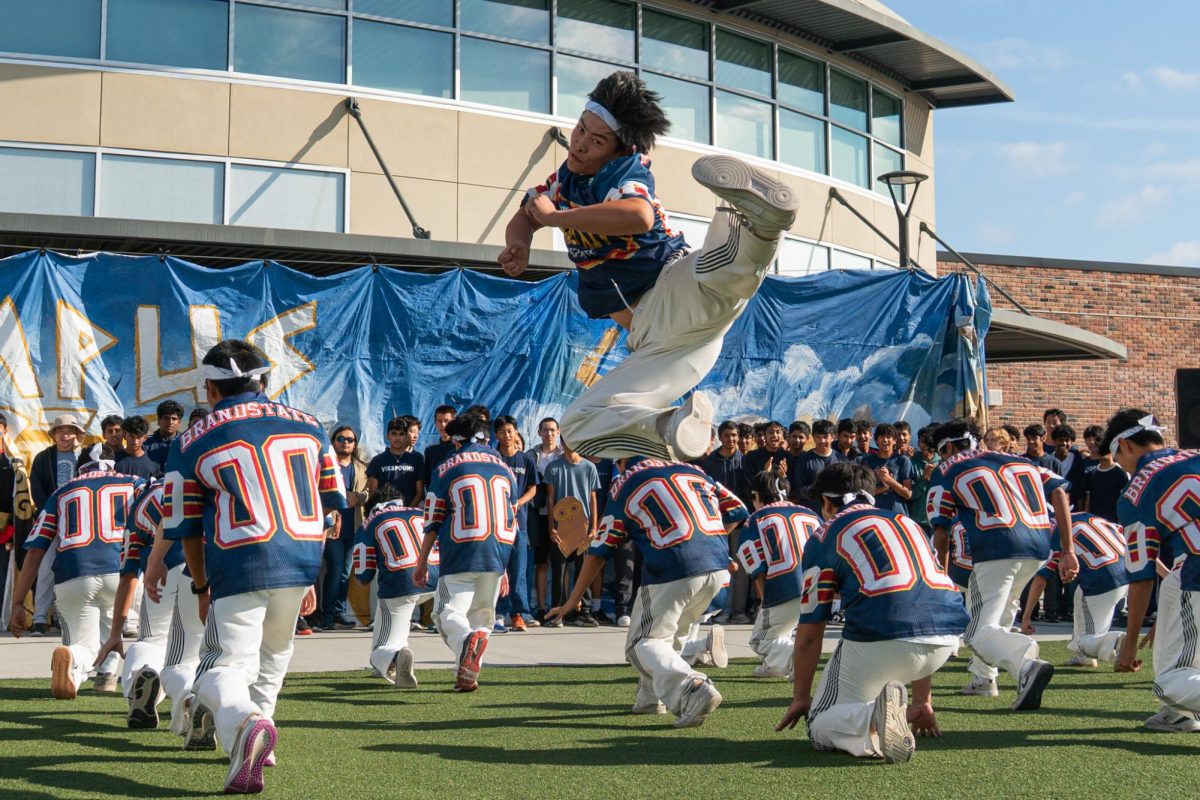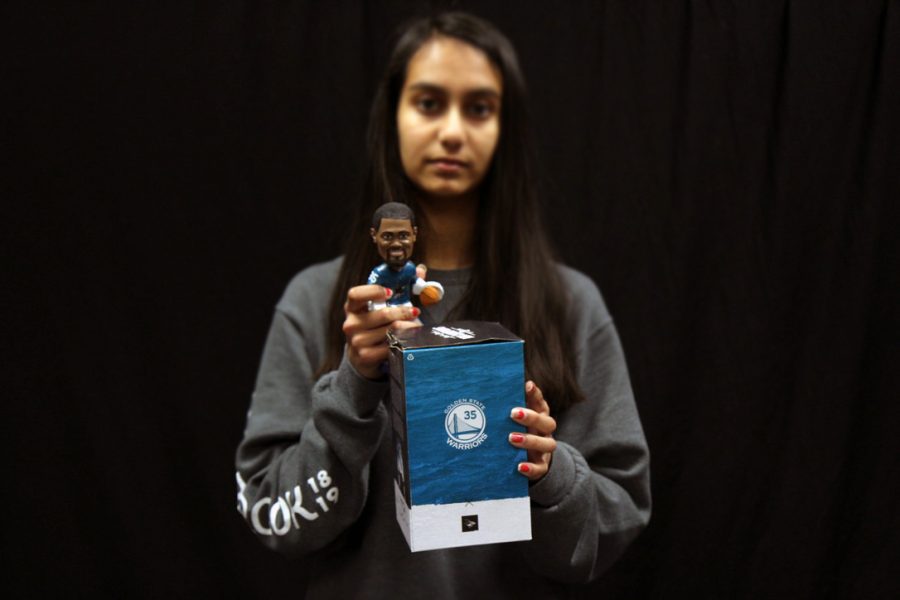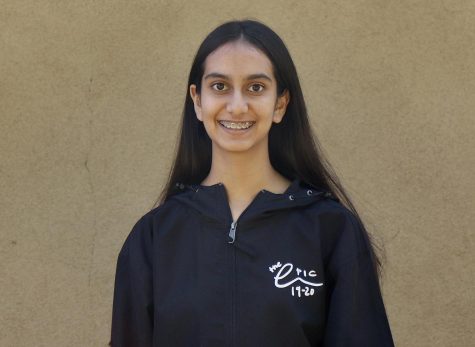The NBA is not tea time
Why Kevin Durant’s tirade against the media is valid
In My Opinion | Why Kevin Durant’s tirade against the media is valid
February 27, 2019
“Let us play basketball.” The moment Golden State Warriors’ All-NBA forward Kevin Durant uttered these words, sports networks rushed to dissect them, as well as the entirety of Durant’s post-game rant directed at the press. In particular, Sports Illustrated’s distortion of this statement stood out to me. The article stated that Durant was jealous of sensational NBA talent LeBron James because the NBA fan base had quickly gotten over him leaving the Cleveland Cavaliers multiple times, while it could not accept Durant’s move from the Oklahoma City Thunder to the Warriors in 2016. In his interview, Durant did not mention James even once, but the writers included James in their analysis of a seemingly obvious and straightforward statement.
It has become increasingly common for NBA coverage to deviate from the truth and twist a player’s words into a story. For example, after Durant had a minor altercation with his teammate Draymond Green on Nov. 13, both Durant and Green were agitated by the media’s portrayal of the incident.
“Don’t ask me about [my altercation with Green] again,” Durant said during a press conference on Nov. 15. “We’re trying to move on.”
Despite Durant’s comments, the media exaggerated the severity of the argument, making it more difficult for the team to overcome this clash.
As demonstrated by Kevin Durant’s post-game conference comments on Feb. 6, misrepresenting an athlete’s statement can hurt players and create an environment in which they don’t feel comfortable expressing themselves to media.
“I don’t trust [the reporters],” Durant said that day. “Every time I say something, it’s getting twisted up and thrown out and in so many different publications, trying to tear me down with my words that I say.”
The lack of trust between players and reporters is primarily fueled by fans’ inordinate desire for drama. In order to prevent journalists from skewing a player’s words, fans should focus on the beauty of the game rather than off-the-court gossip.
Durant, widely-acknowledged as one of the most interactive and open NBA players when it comes to journalists, broke a week-long media silence on Feb. 6, following a 141-102 blowout victory against the shorthanded San Antonio Spurs. He had not spoken to reporters in more than a week, since the New York Knicks traded star center Kristaps Porzingis. Ever since the start of the season, there had been increasing speculation that Durant would sign with the Knicks in this summer’s free agency, when he would be have the option to leave the Warriors and sign a contract with any NBA team. The Knicks trading Porzingis has only made these rumors stronger.
When Durant finally addressed the press on Feb. 6, reporters were eager to question him about his impending free agency decision. He was livid.
That night, I had time to watch Durant’s interview while it was streaming live. I don’t typically watch post-game press conferences, and when I do, it’s only for specific comments that have received a significant reaction from basketball fans. While watching, at first, I was excited that Durant was finally talking to the press. However, when I saw Durant look directly at an interviewer and tell him to “grow up,” I was shocked, and admittedly, a little apprehensive about what would come next. That statement was the beginning of a vehement tirade condemning reporters’ constant probing about Durant’s 2019 free agency decision.
Since I watched the interview live, my thoughts were not affected by any potentially biased reporting on the incident, and I consequently agreed with Durant’s comments. I could form my opinion on Durant’s comments, and I agree with him. As in the example from Sports Illustrated, many publications twist every little detail that an athlete admits, and try to tear them down with their words.
Durant is extremely sought-after within the league, so some speculation about his future team is expected and he knows that. Durant understands that he must address journalists’ questions; the NBA makes money through media rights and pays him with that money. However, as Stephen Curry explained while defending his teammate, Durant is tired of not having control over how his voice is portrayed to the public. Every day, reporters make inaccurate claims about what they heard from an “insider source close to Durant.” It’s no surprise that Durant no longer trusts publications as he once did.
But journalists are just doing their job. They are conveying “insider information” to the public. They are giving readers stories. In fact, a reporter actually defended his questioning during Durant’s interview on Feb. 6 by referring to demands from basketball followers.
“We’re all getting questions from fans about ‘What’s wrong with Kevin?’” the reporter said.
Nowadays, people have lost interest in reading analysis on the actual game. They care more about the conflicts and tension between players or teams, so writers dig deeper into those.
Right before Durant’s press conference, the Warriors demolished the Spurs, winning by 39 points. The team had a 49-point third quarter, a phenomenal shooting night, and 42 assists, of which Durant dished nine. Unsurprisingly, not a single reporter asked about the game, because they were more interested in finding more clues about Durant’s pending free agency decision, which he has yet to publicly reveal. When a reporter finally asked about the game, he stuttered while addressing Durant. The question was unusually generic, and the answer was obvious if you paid attention to the game. Overall, the instance was awkward, forced and ingenuine. Deliberately ignoring the question, Durant got up and left the room.
“All right. I’m done,” Durant said. “You know you don’t care about that.”
Durant’s response to the reporter highlights how fans’ desire for drama has created this volatile and uncomfortable environment for the players. Warriors’ head coach Steve Kerr discussed how he and the players have learned to accept fans’ intense interest and passion for watching star players switching teams, but they should not have to do so. The NBA is not supposed to be a “soap opera”, as Kerr described it. Players are not fictional characters. They are human, and the constant rumours swirling around them hurt. They have worked day in and day out to reach the skill-level they are at, to inspire us and to give us the joy of watching professional basketball. The least we can do to respect them is appreciate the beauty in the game itself rather than the drama surrounding it.
Durant slam-dunked in our faces with his comments. Whether by breaking down the footage of his interview, or by simply remembering to get out of his way, we must learn from our mistakes so that we are not posterized by a player again. As basketball fans, we should thrive less on gossip and focus on the actual game. If we do so, NBA coverage will include more about how a team plays than the tension between players. Publications will be less likely to distort an athlete’s words. Therefore, it is our responsibility to help restore the NBA’s positive atmosphere: one where athletes feel comfortable sharing their thoughts with us fans.




































































